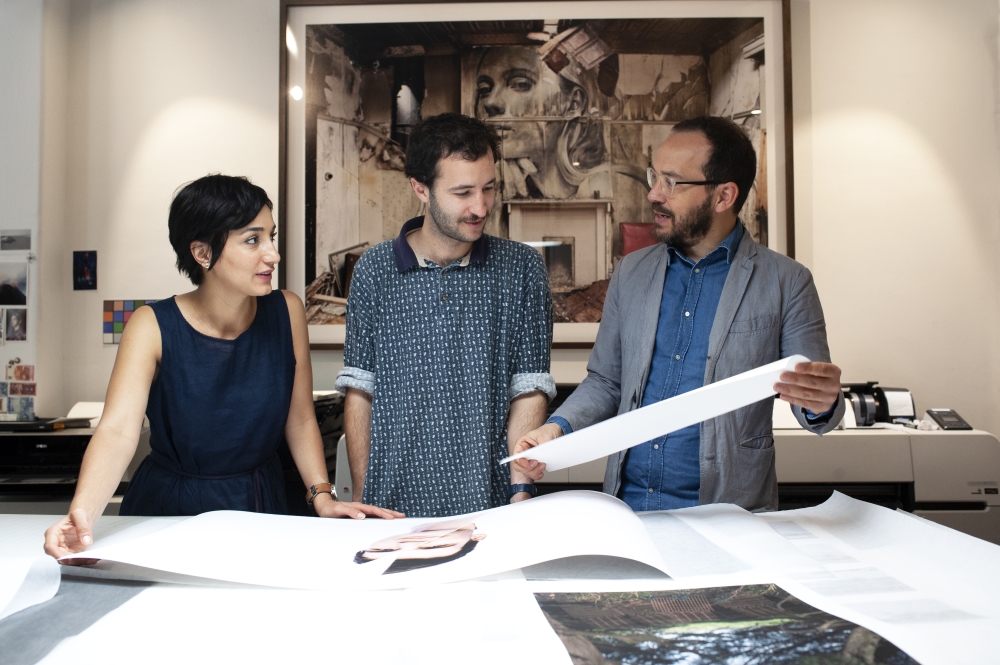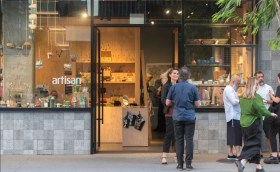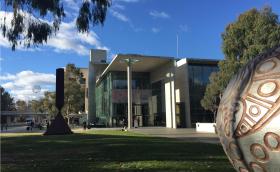Photography Studies College (PSC) course director Daniel Boetker-Smith, who spent a month overseas researching for the course, which started in February 2018, said a key aim is to break the cycle of courses being somewhat inwardly focused on the Australian scene, and instead connecting students with mentors from around the world.
‘One of the things we identified is that people doing a Masters in Australia feel as though they are not getting that connection to what’s going on internationally and it is very much a kind of feedback loop of Australian styles and themes,’ he said. ‘Particularly with photography, it is really important that students are locating or negotiating their work in the context of an international photography scene – that’s across Asia as well as Europe and America.
‘Our students are thinking about multimedia, art practice, journalism, curating, project management, publishing, academia as career paths,’ Boetker-Smith said.Working with these mentors also means greater ability to establish networks and avenues for future work, which is part of PSC’s commitment to ensuring students are prepped for a career post-graduation.
Current mentors include Clare Strand (UK), Ian Teh (MY), Melinda Gibson (UK), Bruno Ceschel (IT/UK), Louis Porter (UK), and Angela Tiatia (NZ/AU).
‘It is these international connections which enable them to think about how their work sits in a wider context and hopefully it gets pushed out there as well and creates opportunities for them,’ Boetker-Smith said.
‘The Masters is focused on how to go out and get work. We focus on building networks and guest speakers and really thinking about planning the next stage of their careers.’
 MA student Ahmad Sabra at his exhibition Invisible Frontiers at Town Hall Broadmeadows Gallery, showing until early February.
MA student Ahmad Sabra at his exhibition Invisible Frontiers at Town Hall Broadmeadows Gallery, showing until early February.
Boetker-Smith says the program is also unique in that it offers an intensive first month with on on-site classes, a dedicated program of guest lecturers and visits to galleries, but then switches to weekly sessions which can allow students to travel and create work far quicker than they would in similar Masters programs.
‘By the time they have finished that month they are ready to start making work,’ he said. ‘So then by the end of the first semester they have actually progressed a lot further than you would in a program where you are having just one session per week.
‘Myself and the teaching team, Dr David Rosetzky, Hoda Afshar and Dr Kristian Haggblom, have really worked hard to say this is a Masters program with flexibility so that students are working here at the college but they can also go and make work, so we have students who are travelling both nationally and internationally making work and coming back.’
The course is designed for creatives across a wide array of experience and chosen career paths. Many have undergraduate degrees in photography but others have had successful careers as commercial photographers and want to focus on their artistic work.
Amongst the current cohort for example there is a student exploring alternative printing processes, another student working with performance and developing a screenplay, a recent graduate from our Bachelor of Photography course, and another researching the history of Indian migration to Australia in the 19th century.‘Our students are thinking about multimedia, journalism, curating, project management, publishing, academia as career paths,’ Boetker-Smith said.

Lecturers Dr.Hoda Afshar and Daniel Boetker Smith with student Oliver Hodgkins at PSC’s in-house fine art print shop. Image supplied.
PSC also offers an undergraduate course on photography, and Masters students are welcome to drop in to any of the classes to upskill as part of their tuition fees. Daniel says students have taken the time to brush up on software such as InDesign, Illustrator and video editing suite Premiere Pro, as well as classes on professional studio lighting and video.
Masters student Andrew Gash is showing his graduating exhibition and book publication titled ‘Indistinctive/





